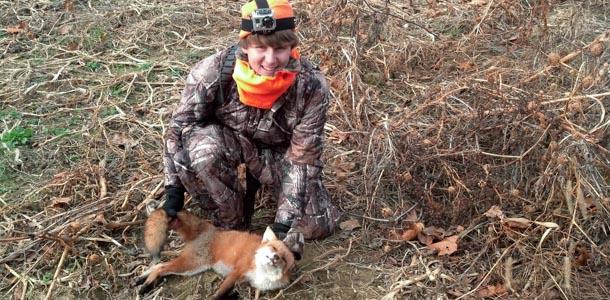Freshman Michael Imbierowicz aimed his shotgun at the goose, just yards in front of him. With the animal in his line of vision, he fired his weapon. The creature toppled to its side. Imbierowicz had his first kill under his belt.
Hunters such as Imbierowicz may become the target of potential laws restricting gun access. These new laws are due to recent incidents of gun violence, such as the school shooting in Newtown, Conn. For this freshman specifically, who wakes up at 6 a.m. once a week during hunting season in order to set up for the day’s hunt, these possible laws would diminish something he loves.
“I work all year for hunting season and have fun when we go down to hunt and if they did [put the laws into effect], I wouldn’t be able to bond with my dad as much,” he said.
Maryland currently has laws limiting certain gun use. Presently it is illegal “to hunt with an automatic firearm capable of firing a series of shots with one continuous pull of the trigger,” according to the 2012-2013 Maryland Guide to Hunting and Trapping. Hunters also cannot be within 150 yards of “an occupied building or camp,” according to the Maryland Department of Natural Resources.
Imbierowicz, senior Katelyn Wolf, and juniors Alex Brewer and Kevin Davies all began hunting around the ages of 11 and 12 because of their dads’ love for the sport. As junior hunters, under the age of 16, they had to take a week-long safety course, have written permission from a parent or guardian, and pay a fee to obtain their hunting licenses. Hunters older than 16 also have to pay a fee to obtain a license.
Among the four hunters, the most common weapons used are shotguns, muzzleloaders, and rifles other than the illegal ones specified before.
Possible restrictions of these types of guns and access to them will “restrict what a lot of hunters can buy and use for hunting” and raise gun and ammunition prices, according to Davies.
David Spancill, gunsmith and owner of Badgersmith Gunworks in Bel Air, claims his business as the reason why he is against the potential laws, but his reasoning stems beyond just his shop. “[The laws] will affect all businesses that have to do with firearms in a negative way,” he said.
“These weapons are not criminals’ weapons of choice. What happened up in Sandy Hook was one in a million and you are restricting people who haven’t hurt a flea. It’s an anomaly,” Spancill said.
According to Spancill, the laws will not only hurt hunting, but also hurt certain shooting sports that rely on “modern sporting rifles” such as the AR-15.
Brewer, however, doesn’t believe that the prospective laws will hurt the sport to these extents. “I don’t think the laws would affect hunting too much,” he said.
Keeping these potential restrictions in mind, Imbierowicz eyes the slain goose and grips his weapon. The weapon he had with him on this outing may not be with him on the next.
Kailey Tracy is the Copy Chief for The Patriot and jcpatriot.com.



